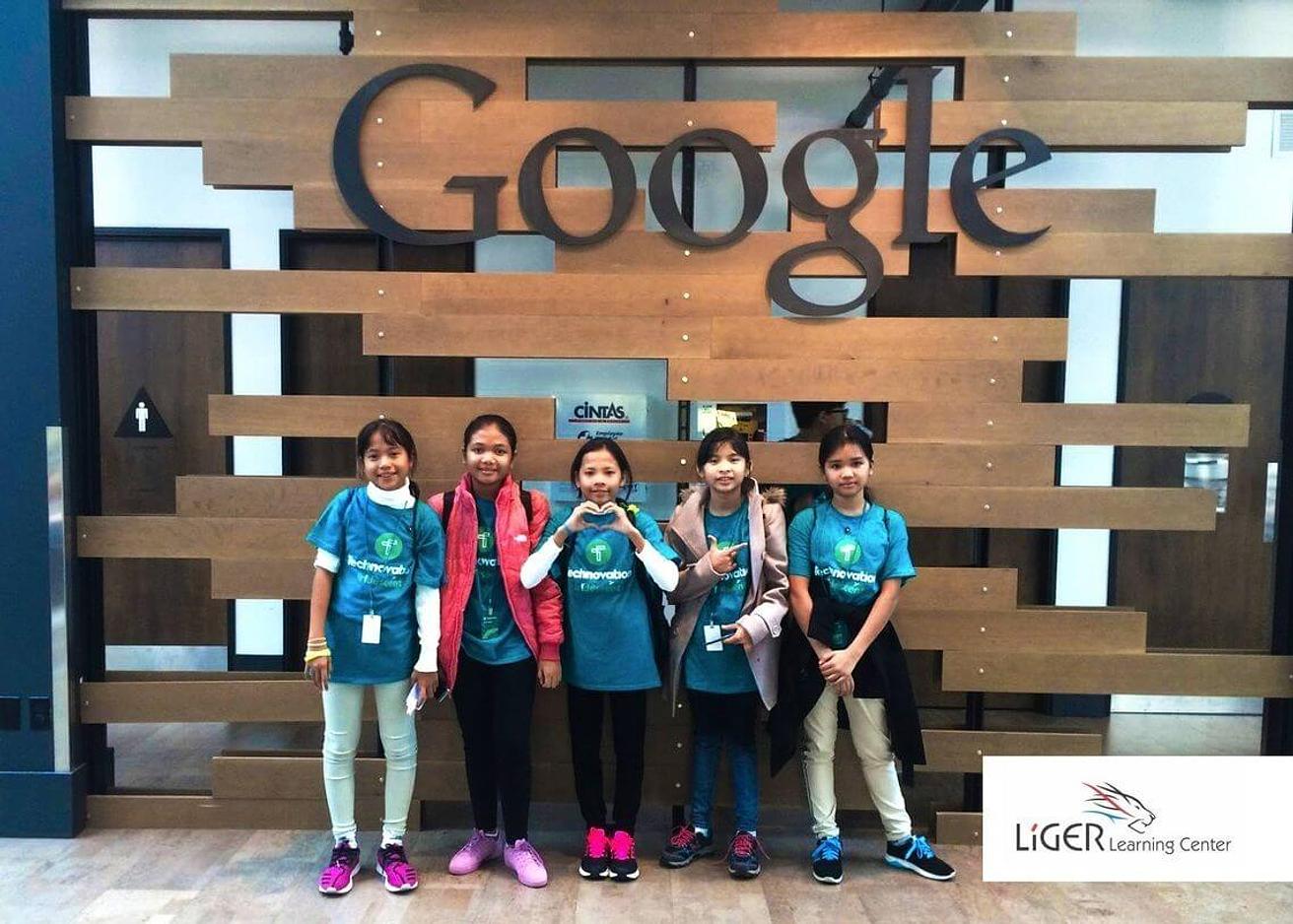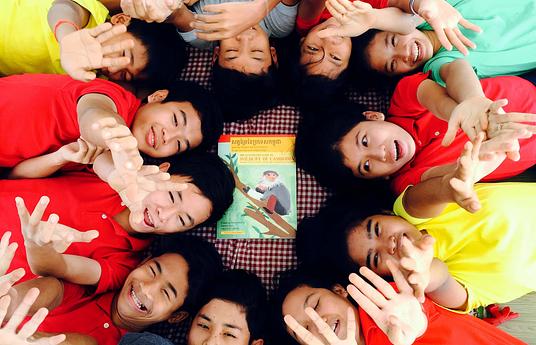Project-based learning, real-world learning, globally-minded students. These are just some of the buzzwords in education at the moment and rightly so. Project-based learning allows students to learn multiple skills simultaneously in an authentic and engaging way, real-world learning makes education meaningful and being globally-minded is increasingly relevant in a world that is more connected than ever. However, they’re usually only ever attached to schools or educational programmes in particularly affluent areas – and are hardly ever spoken about when thinking of kids in extremely rural locations where kids might not even go to school.
But in Cambodia something wholly unexpected and inspirational is happening. The Liger Leadership Academy takes children from rural provinces, where they might not even know about anything outside their realm of personal experience such as space or other countries, and transform them into global change-makers in just six years. This is a bold statement but as Jeff Holte, Director of Education at the Liger Leadership Academy, explained at the HundrED Summit earlier this year, “You have to do something bold to get bold.” And everything about the academy is definitely bold!
It also just makes a lot of sense. No matter where you are in the world, everyone can relate to the motivational problems facing students in schools. A lot of the time curriculum doesn’t make sense or seem relevant to students’ lives outside of school and this mismatch creates deep-rooted motivational issues. At the academy, students work on real problems happening in Cambodia and in the wider world. For instance, Cambodian musical history is disappearing as it’s not documented. Students took it upon themselves to interview elderly members of their society so that they could create a musical history of Cambodia and preserve the information for future generations.
Everything about the school is based on embracing the opportunities that come their way. This works even from a teacher level where virtual experts help out and teach the kids what the teachers present in the school don’t know about. For instance, none of the ‘physical’ teachers in the school had musical skills – so they had a musician teach kids the piano via the internet instead.
The students subsequently raised the funds to distribute the book to schools across Cambodia, which they wrote in two languages, and now their work is being read by at least half a million people across the country.
"
The projects can also be inspired by what Holte calls ‘opportunity-based learning’, where they take advantage of the opportunities that arise for discovery and exploration. A group of twelve-year old girls at the school who initially didn’t speak any English or have any computational training, learnt to build an app for a competition. They went on to present the app to the Minister of Education in Cambodia and ended up competing in an international competition in California where they presented their app in English at the Google and Facebook offices! This happened within just one year at the academy and wasn’t part of the curriculum at all. It was simply down to making use of the opportunities that came the students way.
Grasping at real-world opportunities helps to make the work the students do meaningful and impactful which creates an environment of high motivation, as Holte describes, ‘Everyone at our school is engaged (...) because they’re doing meaningful work. They’re doing real work for something, somebody or some real purpose.” The educational programme at Liger Leadership Academy is both opportunity and purpose-driven creating a student-body and learning environment that is highly motivated.
This is best shown through a project the kids worked on where they wrote a book on on how the wildlife of Cambodia is disappearing and they had to figure out how to get people to read it. If no one read the book they wouldn’t be making a change and the school is all about creating change-makers, not just students with nice projects for their own personal portfolio. The students subsequently raised the funds to distribute the book to schools across Cambodia, which they wrote in two languages, and now their work is being read by at least half a million people across the country. This is no mean feat and is what many adult authors could only wish for!
You could easily be mistaken for thinking the school is only about success stories, but Holte reinforces that just as the kids are able to garner success it’s also about embracing failure. Holte explains, “Failure really is an option at our school! Many things which we do don’t actually work (...) It might not pan out. But that’s real life.” It’s important that kids are allowed to fail and accept that this is just a natural part of life. Without failure none of us would learn anything and in a world that requires us all to be extremely resilient it’s inspiring that this is woven into the fabric of life at the academy.
Although this learning environment is wholly unique, its building blocks aren’t just suitable to this one scenario. Creating change-makers is possible all over the world and the main focuses of the school – such as real-world learning, project-based learning and getting students to think globally – are relevant and adaptable for all learning environments.
To find out how to implement similar strategies where you are you can find step-by-step instructions on the project page. Watch Holte’s entire speech below to find out more about the incredible work going on in this inspirational school in Cambodia.



